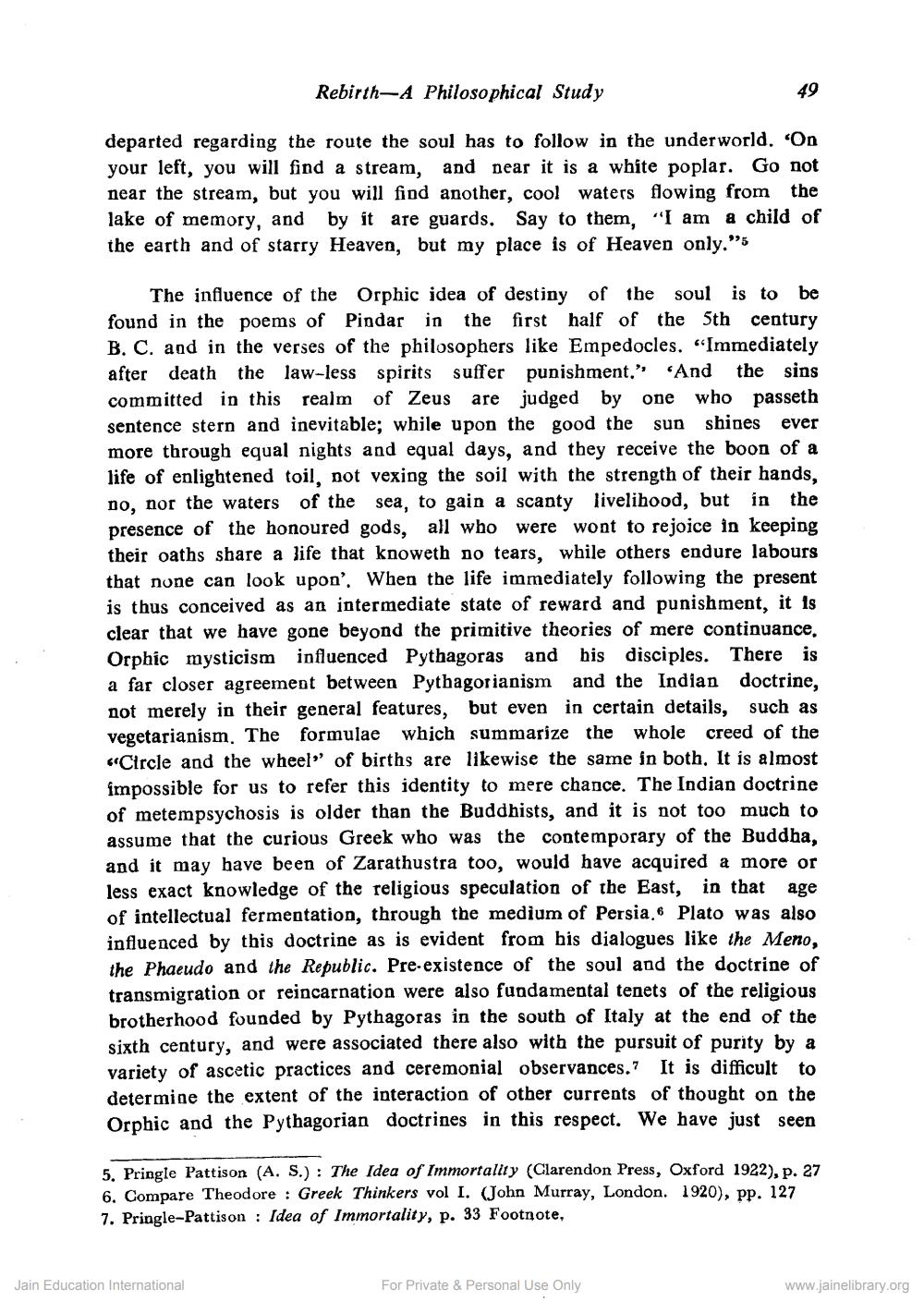________________
Rebirth-A Philosophical Study
departed regarding the route the soul has to follow in the underworld. "On your left, you will find a stream, and near it is a white poplar. Go not near the stream, but you will find another, cool waters flowing from the lake of memory, and by it are guards. Say to them, "I am a child of the earth and of starry Heaven, but my place is of Heaven only."'s
The influence of the Orphic idea of destiny of the soul is to be found in the poems of Pindar in the first half of the 5th century. B. C. and in the verses of the philosophers like Empedocles. "Immediately after death the law-less spirits suffer punishment." And the sins committed in this realm of Zeus are judged by one who passeth sentence stern and inevitable; while upon the good the sun shines ever more through equal nights and equal days, and they receive the boon of a life of enlightened toil, not vexing the soil with the strength of their hands, no, nor the waters of the sea, to gain a scanty livelihood, but in the presence of the honoured gods, all who all who were wont to rejoice in keeping their oaths share a life that knoweth no tears, while others endure labours that none can look upon, When the life immediately following the present is thus conceived as an intermediate state of reward and punishment, it is clear that we have gone beyond the primitive theories of mere continuance, Orphic mysticism influenced Pythagoras and his disciples. There is a far closer agreement between Pythagorianism and the Indian doctrine, not merely in their general features, but even in certain details, such as vegetarianism. The formulae which summarize the whole creed of the "Circle and the wheel of births are likewise the same in both. It is almost impossible for us to refer this identity to mere chance. The Indian doctrine of metempsychosis is older than the Buddhists, and it is not too much to assume that the curious Greek who was the contemporary of the Buddha, and it may have been of Zarathustra too, would have acquired a more or less exact knowledge of the religious speculation of the East, in that age of intellectual fermentation, through the medium of Persia, Plato was also influenced by this doctrine as is evident from his dialogues like the Meno, the Phaeudo and the Republic. Pre-existence of the soul and the doctrine of transmigration or reincarnation were also fundamental tenets of the religious brotherhood founded by Pythagoras in the south of Italy at the end of the sixth century, and were associated there also with the pursuit of purity by a variety of ascetic practices and ceremonial observances. It is difficult to determine the extent of the interaction of other currents of thought on the Orphic and the Pythagorian doctrines in this respect. We have just seen
49
5. Pringle Pattison (A. S.): The Idea of Immortality (Clarendon Press, Oxford 1922), p. 27 6. Compare Theodore Greek Thinkers vol I. (John Murray, London. 1920), pp. 127 7. Pringle-Pattison: Idea of Immortality, p. 33 Footnote.
Jain Education International
For Private & Personal Use Only
www.jainelibrary.org




